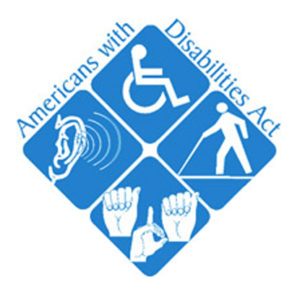Post contributed by Trace Donald, Director, Office of Accessibility
While getting my undergraduate degree in Management Information Systems in the early 90s, many of my senior level courses required group projects. In two of my classes, I had a team member that was a quadriplegic. In the early 90s, many of the buildings on campus lacked basic physical accessibility. Our group realized very quickly that our homes and apartments prevented anyone using a wheelchair to enter, so most of our meetings were held at his home. Most of our computer labs on campus were not accessible, so those of us that could use stairs printed our reports or compiled our programming code while our team member in the wheelchair waited downstairs. Many of our meetings with faculty occurred outside their offices, because most were too small to accommodate a wheelchair.

The passage of the Americans with Disabilities Act pushed universities and others to address their accessibility issues.
After the Americans with Disabilities Act was signed into law, the university put together a team to address the accessibility issues across campus. Curb cuts were built, automatic doors installed, elevators added, and restrooms were renovated. With those improvements everyone began to benefit. Those pushing carts or carrying a load of books welcomed the installation of an elevator and the addition of an automated door. By ensuring that your events or meetings are accessible, you might find that not only does it allow for people with disabilities to participate fully, but that others benefit from the accessibility improvements. For example, providing electronic documents of handouts prior to a meeting allows a person with a disability the chance to use technology to read the handouts and along with others to prepare for the meeting. Identifying the accessible path of travel to your event and using good signage is beneficial to those with and without disabilities. Participants with physical disabilities and those carrying equipment or other supplies welcome a barrier-free path to your event.
The accessibility of your events, programs, and meeting is important and not planning for accessibility could lead to compliance issues, but the purpose of this article was to show that we all benefit from accessibility improvements, not just those with disabilities. If you need more information on this topic, please contact me or visit the campus accessibility website and select the link “Improving Accessibility when Planning an Event or Program”.



